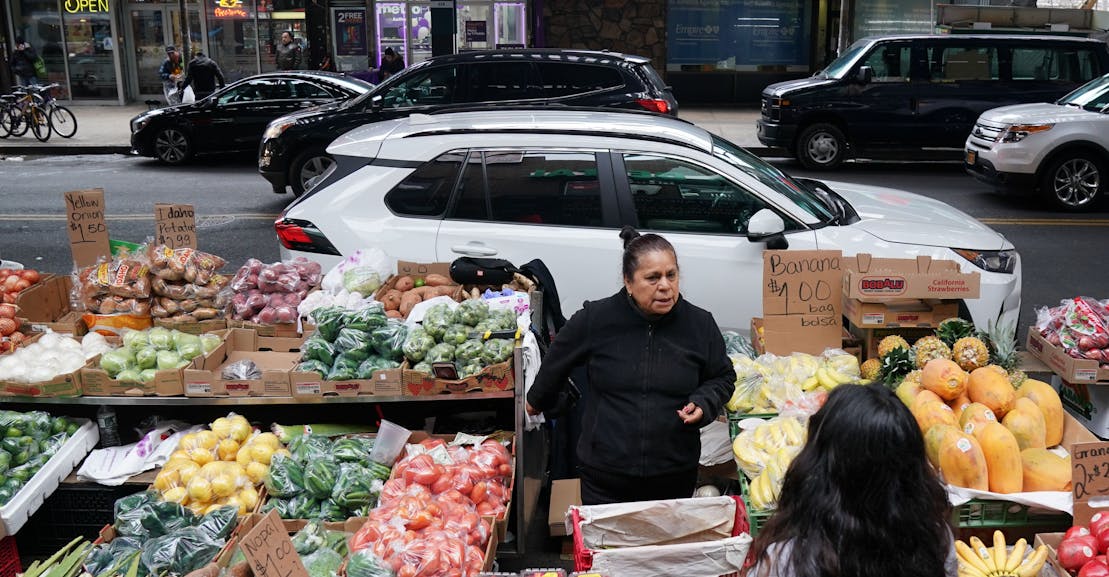On an evening in late September at Corona Plaza, an open-air commercial hub in Queens, the bachata blaring from a Boost Mobile competes with the noise of trains clattering overhead; kids on scooters dart around clusters of teens taking selfies; and inescapable franchises like McDonald’s and Dunkin’ Donuts share real estate with makeshift vending food carts hawking tacos, tamales, pork rinds, elotes, fruit juices, and arepas. It’s a busy scene, and the kind of place people conjure up when they think about New York City. “To come to this city is a great opportunity,” Froilan Flores told me in Spanish as the steak bits cooking on his cart released curly tendrils of smoke into the newly chilly air. “This is one of the greatest cities in the world.”
For seven years, Flores worked as a buser at a café in another Queens neighborhood, but he found himself out of a job when New York’s stay-at-home order went into effect in March. Soon, his bills were mounting and he fell behind on his rent on a duplex he shares with three other immigrant families from his native Puebla, Mexico.
Flores wasn’t the only restaurant worker to lose his income during the pandemic, but he was, like millions of undocumented workers in this country, locked out of the unemployment and other benefits that have kept so many of his industry colleagues above water. “If it comes, it comes,” Flores remembered thinking early in the pandemic about whether he’d receive stimulus aid. That sense of resignation was common: Many vendors I spoke with said that they didn’t bother looking for state support, assuming they wouldn’t qualify. Others, though, said they were surprised that they were ineligible because, despite their undocumented status, they paid their taxes using their Individual Taxpayer Identification Number.
Without other support, Flores turned to vending, joining workers throughout the city who, often excluded from the same systems, feed others to help feed themselves and their families. “There has definitely been an increase in street vendors in Corona, and across the city,” Carina Kaufman-Gutierrez, deputy director of the Street Vendor Project, which provides legal and advocacy support to street vendors, told me. “There is a need to be your own source of income when a crisis happens.”
Since the economic downturn induced by Covid-19, social service agencies across the city report that upward of 90 percent of their immigrant clients have lost their job. Before the pandemic, despite their labor participation outpacing U.S.-born citizens’, New York’s undocumented immigrants were the city’s lowest earners. That means that, beyond losing income now, there are little to no savings for people to fall back on.
